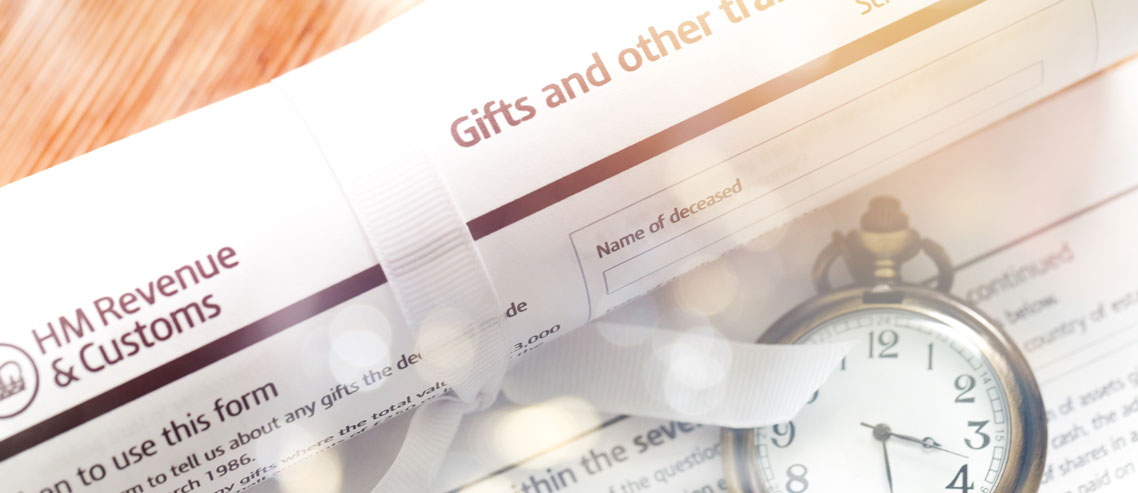UK Inheritance Tax Thresholds & Rates

Please be advised that the information in this article regarding QNUPS and IHT is no longer accurate due to the recent changes announced in the UK Budget. Starting in April 2025, the regulations will have significant implications that may affect your understanding of these topics. We encourage you to stay informed and consult with a Soteria Trusts expert to navigate these changes effectively.
Inheritance Tax (IHT) is a tax paid on the estate of a deceased person. It has to be paid by the inheritors before they can access the assets. More and more estates in the United Kingdom meet the inheritance tax (IHT) threshold of £325,000, mainly due to rising property prices in the country. This makes Inheritance Tax Planning not only important, but indeed crucial, not only for British Nationals, but for anyone with UK-sited assets.
Inheritance Tax Threshold and Rates in the UK
IHT is payable on the value of anything you leave behind when you die – collectively, the items are known as your estate. This can be money, shares, investments, property, collectables etc. and also the value of any gifts made in the 7 years before death.
The Inheritance Tax Threshold currently stands at £325,000 per person, or £650,000 for a couple. Any estate that is not valued above this threshold does not qualify to pay IHT.
No IHT on the estate left to a spouse
Without limits, no inheritance tax is due on money or possessions left to a spouse. Your spouse can also inherit your tax-free allowance if you leave everything to them. This would allow them to pass on up to £650,000 tax-free to their beneficiaries when they pass away.
Residential Nil-Rate Band
People who want to pass their estate, including property, to their children or grandchildren can benefit from an additional tax-free inheritance tax personal allowance. This extra allowance, also called Residential Nil-Rate Band (RNRB), stands at £175,000 – taking the total tax-free personal allowance to £500,000 for an individual. This makes the Inheritance tax on property passed on to descendants is only applied when the total estate is valued at greater than £500,000, for a single person, or up to £1,000,000 for a married couple.
Related: Do I need to pay IHT on my parent’s house?
IHT threshold for a single person
| Tax Year | Nil Rate Band | Residential Nil Rate Band | Total potential Tax Threshold |
| 2020/21 | £325,000 | £175,000 | £500,000 |
IHT thresholds for a couple
| Tax Year | Nil Rate Band | Residential Nil Rate Band | Total potential Tax Threshold |
| 2020/21 | £650,000 | £350,000 | £1,000,000 |
Residential Nil Rate Band taper threshold
There is a taper threshold to the Residential Nil Rate Band, which can only apply to property which is worth less than £2,000,000. If a property is worth more than that, the RNRB will be reduced by £1 for every £2 and will be capped at £2.350,0000 in the 2021/22 tax year. That means that the wealthiest estates won’t be able to benefit from this tax allowance.
The Inheritance Tax Rate
The IHT rate is 40% and due on any amount above £325,000 for an individual, and £650,000 for a couple. This 40% rate is only taxed on the sum of the estate that is above the £325,000 threshold (or £500,000 if the property is left to a child or grandchild) based on one person’s estate.
Lower inheritance tax rate if you leave to charity
The 40% standard IHT rate can be reduced to 36% if you donate 10% or more of your estate to charity. More information on the HMRC website.
How much is my estate worth?
Your estate is everything you own minus everything you owe. It can include:
- Any property in the UK and in foreign countries
- Cash, ISAs account, deposits accounts
- Investments, shares, funds, stocks, pensions (Defined Contribution, above the Lifetime Allowance*)
- Life Insurance Policy (if it’s not in Trust)
- Vehicles, businesses, valuables (such as jewellery, family heirlooms).
Your liabilities will contribute to lowering your estate’s worth: loans, mortgages, credit card debts.
IHT and Gifts
Gifts made in the 7 years before a person’s death also need to be considered in the valuation of the estate. The UK law specifies that one can lower the value of their estate by giving gifts of up to £3,000 each tax year. These gifts don’t count towards the value of your estate after seven years. Gifts exempt from IHT can include:
- Cash
- Property
- Valuable possessions, such as jewellery or art.
IHT Calculator
On the Soteria Trusts website, you will find an IHT Calculator that automates your estate valuation and IHT process! Check it out as it can give you an estimate of your estate’s value within seconds and make you aware if you are in need of further IHT Planning to reduce these taxes.
Soteria’s IHT Planning Service
When it comes to Inheritance Tax, no one solution fits all. As everyone’s circumstances are different, we recommend seeking advice from a professional tax adviser or financial planner who understands IHT and the complexities associated with its mitigation. Contact us for a free consultation today.